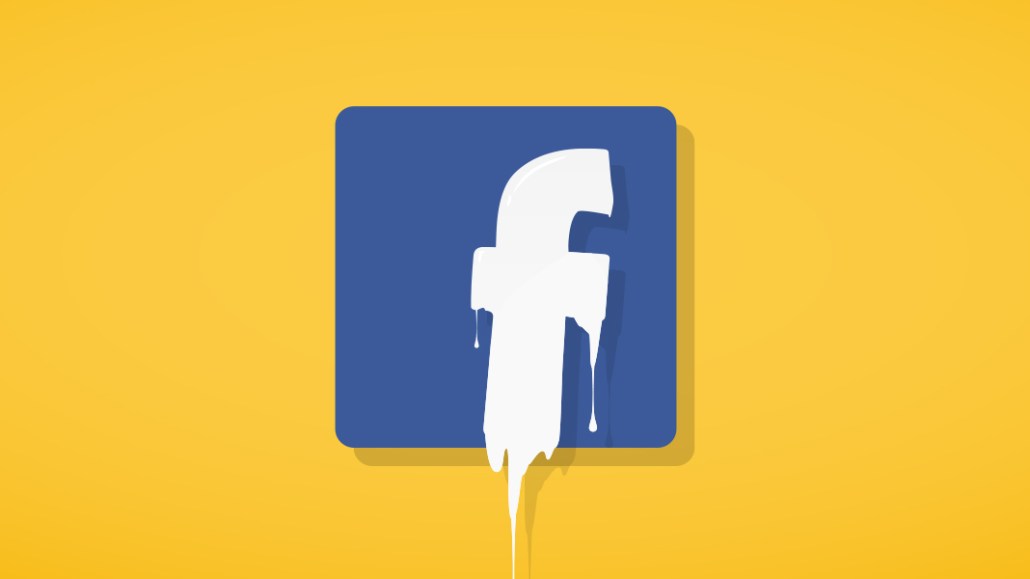Save 50% on a 3-month Digiday+ membership. Ends Dec 5.
‘Activism as brand strategy’: Brands capitalize on Facebook-Cambridge Analytica scandal

With Facebook reeling after revelations that an app maker exposed millions of user profiles and then gave that user data to Cambridge Analytica, marketers, barring a few, have so far been mostly quiet about whether they will take action against the platform giant.
On March 23, consumer electronics company Sonos said it will pull advertising from Facebook, Instagram, Google and Twitter for a week and donate an undisclosed amount of money to RightsCon, a digital rights conference. The company didn’t share how much it spends on those platforms, but said its Facebook spend is “significant.”
Other advertisers that have pulled money from Facebook include Mozilla. COO Denelle Dixon wrote in a blog post that the company was “pressing pause” on its Facebook spend. Germany bank Commerzbank said it would do the same.
In a blog post, Sonos said the reason it won’t permanently abandon those platforms is because it fundamentally believes in them: “We have found Facebook, Instagram, and other online platforms to be incredibly effective ways to reach our customers and to share our mission as a company — Not to mention stay in touch with friends and family in our personal lives,” the company wrote in the post.
Greg March, CEO at media agency Noble People, calls it “activism as brand strategy.” Unlike last year’s YouTube crisis, where multiple major brands like AT&T pulled or at least decreased spend on YouTube and Google, the Cambridge Analytica scandal is less of a “house on fire.” “I don’t know the harm that brands are going to run into in a near-term way with Facebook,” he said, “but I did know the harm when YouTube had nasty stuff on there and it was next to my advertising.”
With Sonos, and any marketers that respond to the Facebook scandal, there has to be a specific brand strategy. Sonos cares as a brand about privacy — it has been vocal with issues like net neutrality and the idea of an open internet. “They’re early, and they’re putting their money where their mouth is,” March said.
Elsewhere, brands are mostly quiet. A rep at a top media-buying agency told Digiday it’s not seeing moves away from Facebook at this point.
Ad position: web_incontent_pos1
A second media buyer also said no clients are pulling their ads from the platform. “Facebook’s problem is with its users, not its advertisers,” this person said.
Another media buyer said the only way his brands would pull advertising would be if users leave Facebook — and if history is to be believed, they won’t. “If it didn’t happen before this, considering all the scandals [Facebook has] had, it won’t happen now.”
More in Marketing

Ulta, Best Buy and Adidas dominate AI holiday shopping mentions
The brands that are seeing the biggest boost from this shift in consumer behavior are some of the biggest retailers.

U.K. retailer Boots leads brand efforts to invest in ad creative’s data layer
For media dollars to make an impact, brands need ad creative that actually hits. More CMOs are investing in pre- and post-flight measurement.
Ad position: web_bfu



